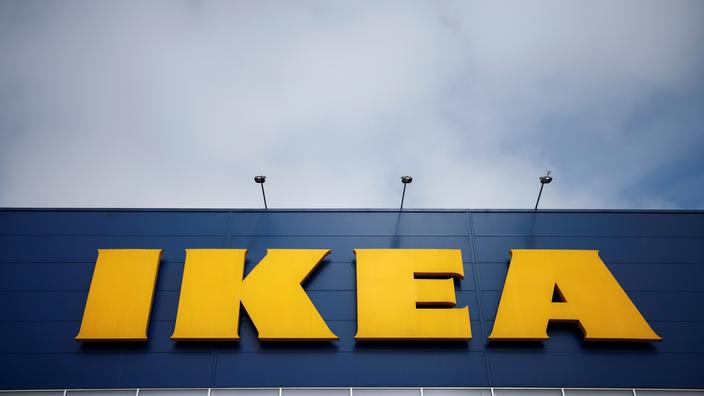“
Big brother is watching you
”.
It is not the telescreen of Orwell's dystopia, but almost: miniature cameras, spy scanners, sometimes even private detectives have been mobilized by certain malicious companies in order to spy on the actions of their employees.
The case of the French subsidiary of the Swedish furniture giant Ikea, condemned on Tuesday for spying on its employees, is not isolated.
Read the file: Ikea: the trial of "mass controls"
The Versailles Criminal Court has in fact recognized the subsidiary and one of its former CEOs guilty of "
concealing personal data by fraudulent means
", and sentenced them, respectively, to a million euros fine and to two years in prison and a 50,000 euro fine.
Many cases of this type are brought each year before the National Commission for Informatics and Freedoms (Cnil), the French gendarme for personal data.
This type of complaint represented in 2019 just over 10% of those received by the organization.
Reminder of some cases revealed in recent years in France and in Europe.
SEE ALSO -
Employees spied on: what was reproached to Ikea France
Translate, you are filmed
In June 2019, the CNIL fined a small Parisian translation company, Uniontrad Compagny, a fine of 20,000 euros for an intrusive and permanent video surveillance system: the six translators were filmed “
at their workstations without interruption
”.
The CNIL was seized on several occasions in 2013 by Uniontrad Compagny employees.
The CNIL, which had also noticed that "
the computer stations [of the employees] were not secured by a single password
", recalls that a company must clearly inform its employees when it sets up cameras and that she cannot film them continuously.
138 cameras for a shopping center
In February 2014, the management of a shopping center located in Saint-Médard-en-Jalles (Gironde) was put on notice by the Cnil for a “
disproportionate employee video surveillance system
”.
During an inspection, the authority noted a total of 138 cameras on the site, including 39 installed in premises not accessible to the public, as well as a biometric device to check the schedules of employees.
Snitch scanner
In December 2012, an employee of the shoe market received a dismissal letter for “
wild breaks
” detected by the scanner he carried in his hand to manage the stock in his warehouse.
The management justifies this dismissal by the fact that when the device does not send a signal, it means that the employee is inactive.
The industrial tribunal of Châteauroux (Indre) sanctioned the company in February 2014 for the use of this undeclared monitoring system.
Big Brother at the discounter
In 2008 and 2009, two internal espionage scandals rocked the German discounter Lidl.
Installing miniature cameras, hiring private detectives, collecting information on the health of employees: the group admits the facts, apologizes and agrees to pay big fines in Germany.
At the same time, several other cases of internal surveillance broke out in this country: Deutsche Bahn, Deutsche Telekom and Airbus were targeted.
Guignols espionage: Canal + relaxed
In 2011, Canal + was released but several ex-employees were convicted of spying a few years earlier on Bruno Gaccio, author of the satirical program “
Les Guignols de l'Info
”.
The latter, who then led the internal protest against the dismissal of the boss of the channel Pierre Lescure, had been spun, filmed and the list of his calls peeled by the security service of Canal.
The judges considered that despite these actions, the responsibility of the audiovisual group had not been engaged.
The tenacity of a Romanian engineer
It was the tenacity of a Romanian engineer, dismissed in 2007 for having used his company's internet for personal purposes, which led ten years later to a landmark judgment of the European Court of Human Rights ( CEDH) establishing that companies could, of course, monitor their employees, but in a reasonable manner. To prove that the employee had committed a fault, his employer had presented the transcript, on 45 pages, of his personal electronic communications during one week. A mode of surveillance which violated, according to the ECHR, the necessary “
fair balance
” between respect for private life and the employer's right to take measures for the proper functioning of his company.









